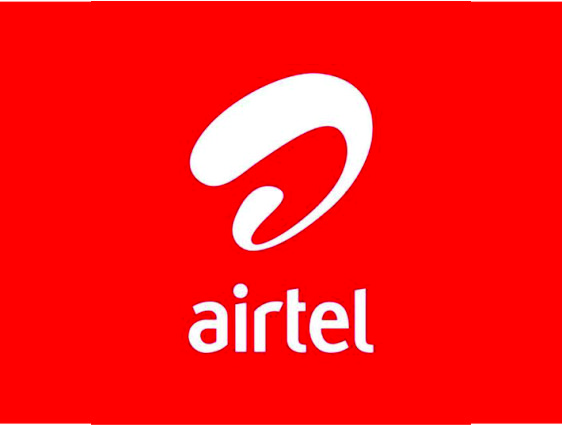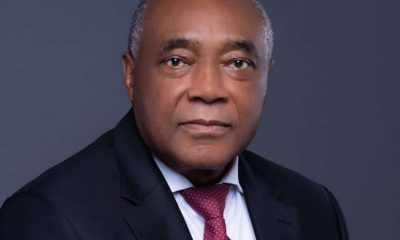Business
Airtel’s planned listing to further deepen Nigerian equity market — Experts

By FELIX OLOYEDE
Barely a month after MTN Nigeria listed on the Nigerian Stock Exchange (NSE), Airtel has indicated interest to go public, which experts believe would add more depth to the market.
The telecom firm had submitted application for the listing of its shares on the Nigerian equity market to the Securities Exchange Commission (SEC) about three weeks ago.
The firm which is currently ranked the second largest telecommunication firm by the Nigeria Communication (NCC) among the four GSM operators in Nigeria, has 40.85 million subscribers base as at December 2018.
Moses Ojo, Head, Research and Business Development, PanAfrican Capitals reasoned that should Airtel Nigeria’s listing sail through, it would positively impact the bourse.
“It will signal the confidence of investors in the Nigerian market.
“Moreover, the nation’s bourse will no longer be dominated by a single (Dangote Cement) or two giants. We shall now have about three giants whose market capitalisation will be in excess of N2 trillion each,” ” he asserted.
Airtel’s entrance into the country’s equity market would be a good development, argued Abayomi Ajayi of FutureView Financial Services.
“It will offer more depth to our market. It offers investors a wider range of sectors/industries to invest in,” he posited.
The Telco which pioneered mobile communications in the country in 2001, has been bedevilled by change of ownership, having started as Econet and has changed hands five times before morphing to Airtel in November 2010 when Indian Bharti Airtel invested $10.7 billion in the company.
The telecom firm is not only planning to list on the NSE, Airtel Africa also intends to raise 595 million pounds by issuing of about 595.2 million to 744 million new shares through Initial Public Offer (IPO) on the London Stock Exchange on or before June 28.
The Indian telecom firm explained that its African unit will be offered at 80 to100 pence a share for its initial public offer on the LSE.
Airtel Nigeria which plans to enter the Nigerian equity market through Initial Public Offer, would be placed in the premium board, where large capitalized stocks trade.
“Airtel is coming by way of an IPO and not List By Introduction (LBI), which should create some initial liquidity and interest, but with a possible price of between N363 and N454 per share, the Offer could prove problematic. “However, the short opening and closing dates suggest that a lot of the sunrise or early transactions in the stock will be cross deals between HNIs. The market should see early excitement, but this could peter out fast, noted Teslim Shitta-bey, a capital market expert and Managing Editor, Proshare Nigeria, financial information service provider.
Meanwhile, investors complained over the listing of MTN Nigeria’s 20.35 billion shares in May, which amounted to just 20 per cent of its shares, arguing the it was way too small for the firm’s stature.
But Ferdi Moolman, the telco’s Chief Executive Officer has explained that it will float an IPO later.
Shortly after MTN Nigeria listed on the Exchange, the Economic and Financial Crimes Commission (EFCC) investigated an alleged shares manipulation scandal as some minority shareholders accused capital market regulators of conniving with the telco to manipulate the performance of share prices.
They also alleged that it did not meet the free float of 20 per cent of its shares before listing, but the firm has explained it met all regulatory requirements before listing.
There have been divergent views if the listing of MTN and Airtel could spur Globacom to toll the same line by listing on the equity market.
While Ajayi of FutureView Financial Service believes this could encourage Globacom to consider going public, Shitta-bey and Ojo think the owner of the only whole Nigerian telco has a different mindset from MTN and Airtel.
“Glo is a different proposition from MTN and Airtel. Glo is owned by a local lad not known for transparency and commitment to best global governance practices. Besides, it will be difficult for Adenuga to break typical idiosyncrasies of the Nigerian ‘big man’, Shitta-bey maintained.
According to Ojo, “I doubt it, except it is regulatory induced. I don’t think the major owner of Glo is disposed towards listing of any of his business on the floor. After all, he is has not raising fund from the capital market.”
Though the listing of MTN was able to lift the market capitalisation by N1.83 trillion, the bourse has been grappling with downtrend this year as investors have sustained negative sentiment for a larger part of the year.
The Nigerian equity market has so far shed -5.02 per cent this year, having lost -15.74 per cent in 2018.
The country’s economic stunted growth of 2.1 per cent, slowing down from 2.38 per cent at the end of 2018 appears challenging to growth prospects of companies.
This has caused many foreign portfolio investors to take to flight as their investment in the market stood at N376.05 billion in May, compared N1.22 trillion in December 2018.








